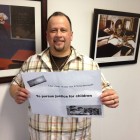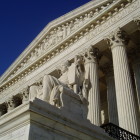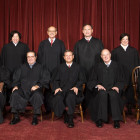Q&A with Shay Bilchik, Former Head of the Federal Office on Juvenile Justice
|
The Juvenile Justice Information Exchange recently sat down with Shay Bilchik, director of the Center for Juvenile Justice Reform at Georgetown University in Washington, D.C., to ask how juvenile justice issues have fared under the Obama administration. Bilchik served as the administrator of the Office of Juvenile Justice and Delinquency Prevention in the U.S. Department of Justice from 1994 to 2000 under President Bill Clinton. He left that position to work as president and CEO of the Child Welfare League of America. Below are excerpts from the discussion. JJIE: How does Congress’s understanding of juvenile justice issues compare with how it was in the 1990s?








